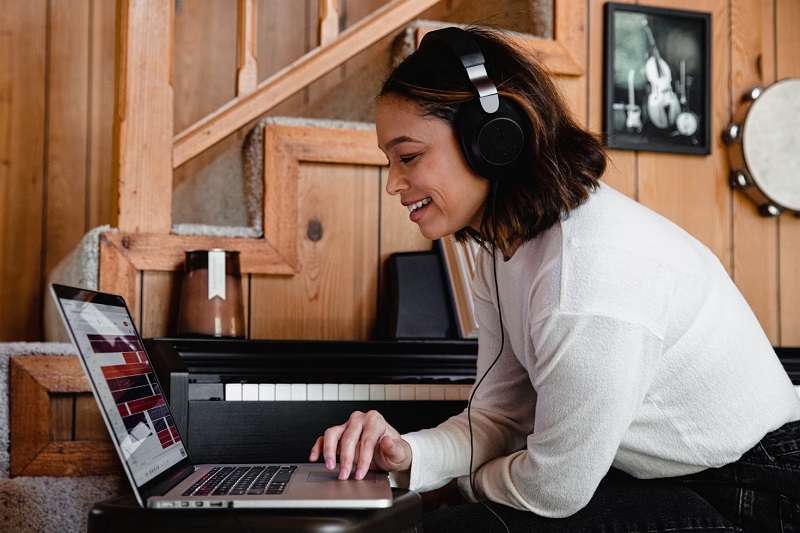Besides generating images or writing text, AI is making waves in music, too. More and more songs are being co-written or composed by artificial intelligence, and that's triggered a lot of talk about how to tell if music is AI-generated.
Say, have you checked out “Not Easy” by Alex Da Kid (ft. X Ambassadors, Elle King, and Wiz Khalifa)? Could you tell that the song was co-written by an artificial intelligence unit by IBM called Watson?
With more tracks like this popping up, it's getting harder to tell what's human-made and what's machine-generated. However, some practical tips can help you figure out how to identify AI-generated music.
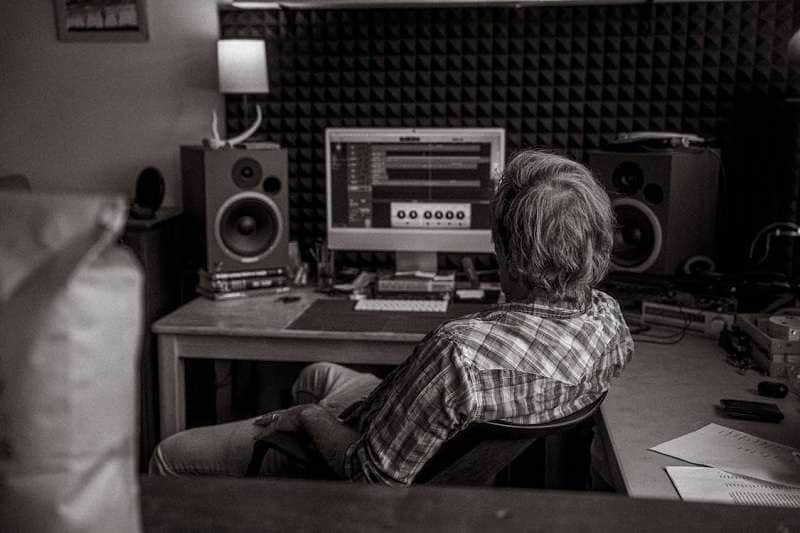
In this article
Part 1. How AI Music Generator Works
Before you learn to detect AI-generated music, it'd be helpful to understand how the tools actually work. One of the easiest ways to explore this is by trying out an AI music generator yourself.
Some AI music generators let you create music by choosing a genre, mood, or theme. Others use a text prompt system, where you simply type out what you want.
Generate AI Music Based on Genres/Mood/Theme
The AI Music Generator in Wondershare Filmora, for example, is one of the best tools that lets you create music based on a mood, genre, or theme. And because it's built right into a full video editor, you can also fine-tune the track and instantly match it with visuals or captions (lyrics).
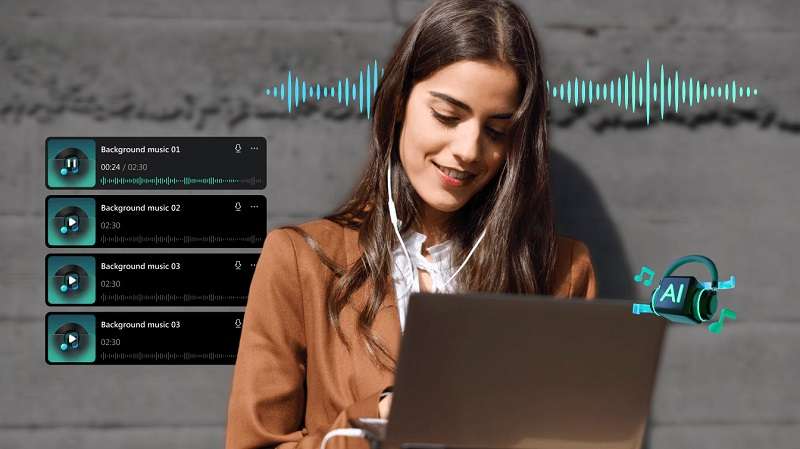
People who benefit from Filmora's AI Music Generator are usually content creators who need copyright-free background music. It's perfect for YouTube videos, social media posts, or even short ads.
How does it work?
The AI Music Generator in Filmora is available on both mobile and desktop. On the mobile app, you can access it by heading to Audio > AI Audio after creating a new project and importing your media file (videos or images).
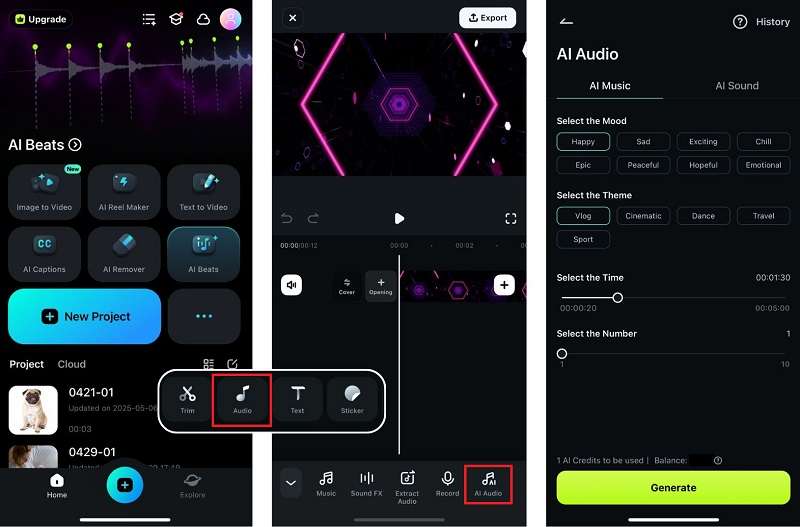
As for the desktop version, you can find the tool by clicking Audio > AI Music.

Both versions work the same way: just pick your preferred mood and theme (on desktop, you can select a genre). You can also customize other settings like the duration and the number of tracks you want to create.
Generate AI Music from Text
Beyond tools like Filmora, there are also AI music generators that focus more on making full songs, complete with vocals. These AI tools usually work based on the lyrics or text prompts we provide.
Some popular options for musicians looking to experiment with AI in songwriting and music production are:
Now, try to listen carefully to the songs you created with AI. Is there something that gives away that it's AI-generated? If you're having trouble spotting these signs, the steps below will guide you on how to detect AI-generated music more easily.
Part 2.Ways How to Identify AI-Generated Music
Next, let's get back to the question of how to spot AI-generated music. Although it's not always obvious, certain patterns and clues can help you tell the difference. From the way the song is structured to how the vocals or lyrics feel, some signs can reveal whether a track was machine-made.
1. Using an AI vs human music detection tool
The easiest method to tell if music is AI-generated is to use an AI-generated music detector. These tools work by analyzing patterns, structure, and audio features to check if a song was made by AI. Some AI music detectors you can use are:
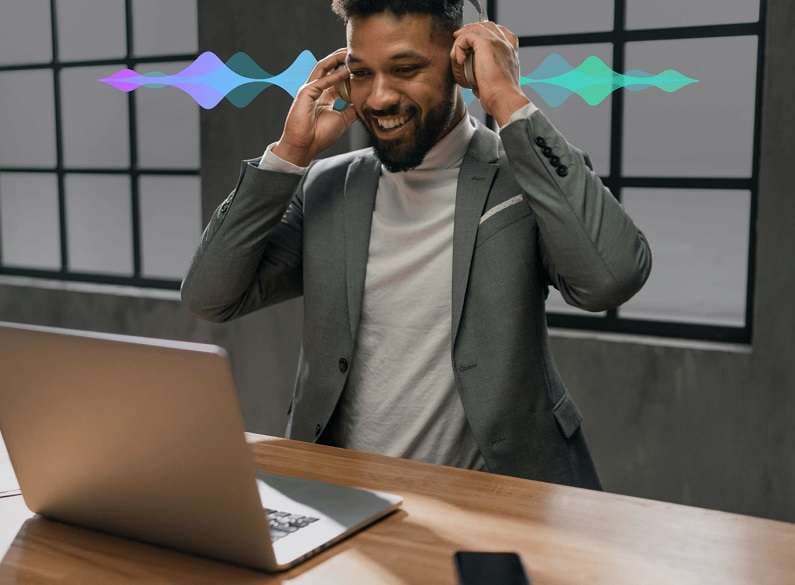
However, keep in mind that these tools aren't always 100% accurate. They can sometimes misidentify songs, especially if the track blends human and AI elements. Like any tool, they work best when combined with your own judgment and other signs of AI-generated music.
2. Repetitive and predictable structure
AI-generated music tends to repeat patterns more often than human-made songs. You see, AI works by learning from existing data, which sometimes leads it to stick to safe, familiar loops and progressions. If a track sounds like it's “stuck” in the same rhythm or chord progression, it could be AI at work.
Check out an example of AI-generated music and see if you can spot the repetition yourself: https://www.youtube.com/watch?v=jsMc1nsx0Iw
3. Vocals that sound robotic or emotionless
To detect if music is AI-generated, listen closely to the vocals of the song. AI-generated vocals can sound flat, robotic, or a little too perfect. They often lack the natural emotion, imperfections, and subtle variations you'd expect from a human singer.
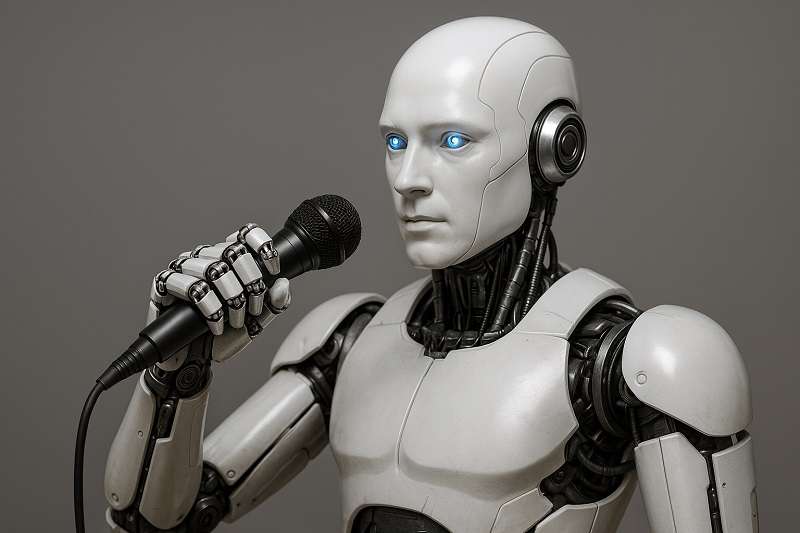
This is because AI models are trained on patterns and averages. It's hard for them to fully capture the raw feeling, unique inflections, and spontaneous expressions that come naturally to human performers.
4. Lyrics that feel disconnected or generic
If the song's lyrics don't fully make sense or feel deep, it could be another sign that they were written by AI. Just like any other AI tool, the more you use it, the more you'll notice patterns. AI tends to reuse phrases, stick to safe word choices, or create lyrics that feel flat and generic.
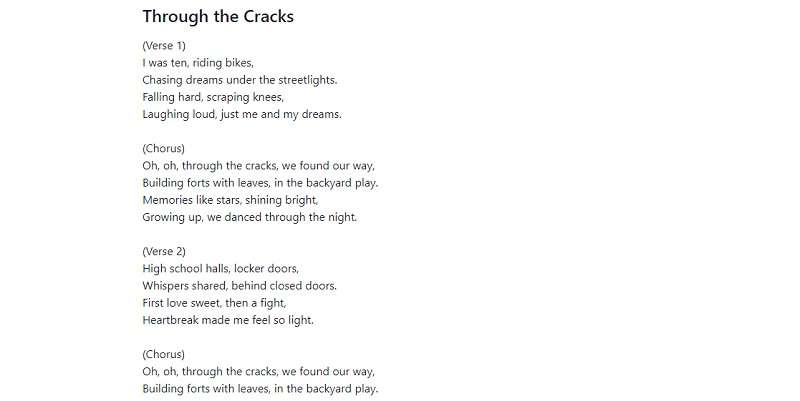
5. Metadata clues or missing artist info
Check the song's metadata (like who the artist is, release details, or production credits). AI-generated tracks might be missing this info, or you'll find unfamiliar names linked to AI platforms or music generators. No clear songwriter or producer? That's worth a second look.
Part 3. Is AI-Generated Music Good or Bad? Let's Talk About It
Now that we've explored how to identify AI-generated music, it brings up a bigger question: Is AI-generated music actually a bad thing?
There are growing concerns around AI-generated music, such as:
- Replacing human artists
- Copyright and ownership issues
- Flooding the industry with generic, emotionless tracks
This is a valid worry that needs to be addressed through clear guidelines, fair regulations, and protections. However, some see AI music as innovative and empowering. Artists like Grimes and David Guetta have openly supported the use of AI in music. In fact, Grimes has encouraged others to experiment with AI-generated versions of her voice to produce new songs.
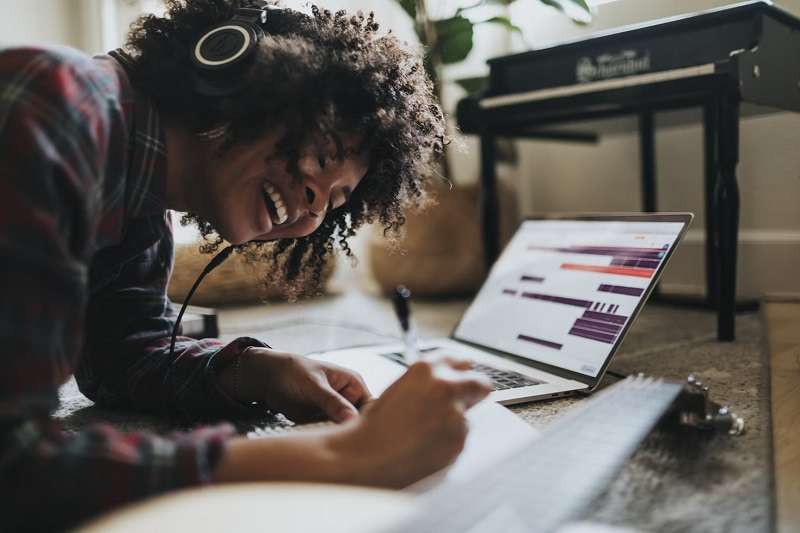
On top of that, the practical benefits can't be ignored. Tools like Filmora's AI Music Generator make it easier for indie creators and content makers to access custom, royalty-free music without expensive software. This opens doors for more people to experiment with their projects.

So, do you see AI-generated music as a good or bad thing? AI-generated music doesn't have to be about replacing human music. Rather, it can be a tool to support and inspire it.
The challenge is finding the right balance between innovation and protecting the rights of human artists. The future of music might not be AI vs. humans, but AI with humans.
Conclusion
By now, you should've gained a better understanding of how AI-generated music works and how to tell if music is AI-generated or not. There are several ways to do this, from using AI music detection tools to listening for subtle clues in the music itself.
So, is AI music the future? Tools like the AI Music Generator in Filmora are already helping creators, content makers, and indie artists access custom, royalty-free tracks more easily. While some worry about the impact on human musicians, others see AI as a creative assistant rather than a replacement, as long as it's used responsibly and ethically.



 100% Security Verified | No Subscription Required | No Malware
100% Security Verified | No Subscription Required | No Malware


